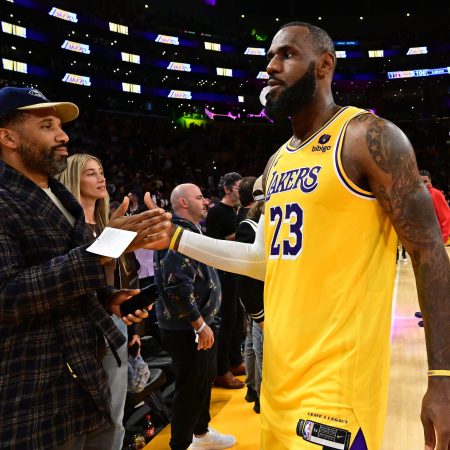With the Supreme Court striking down an anti-sports gambling law on Monday, you probably have questions. Starting with, “How do I place my first legal prop bet.”
You can read the full SCOTUS decision here. In the meantime, we chatted with Zach Zagger, a senior reporter at Law360 covering sports law, about the immediate and long-term ramifications of this momentous decision.
Can you explain this ruling in 30 seconds?
The Supreme Court decision strikes down a federal law that had been blocking states from legalizing sports betting, even if the state wanted to do so. Before, Nevada was the only state with legal sports books. Now, other states could follow if they pass laws to allow sports betting. It is likely to have a major effect on how fans interact with sports by bringing sports betting out into the open.
What’s going to happen first?
New Jersey is the state that is most ready to move forward with sports betting (other than Nevada), as its move to allow sports betting at its casinos and horse racetracks was at issue in the Supreme Court case.
What are the big changes coming later on?
Though this decision opens the door to sports betting, the process is far from over. The ruling will likely set off a state-by-state approach by the gambling industry to legalize sports betting in individual states. New Jersey has already opened up sports betting at its casinos and racetracks, while at least three others — West Virginia, Mississippi and Pennsylvania — passed in anticipation of the Supreme Court’s ruling to open the door for sports betting.
However, this will be challenging for sports leagues to deal with, as each individual state will have its own quirks. Further, issues must be sorted out such as age limits for bettors, advertising restrictions and whether betting will be permitted on college sports.
Which part of the ruling should sports bettors be most excited about?
The ruling paves the way for more legalized sports betting, providing above-board opportunities for sports bettors and perhaps alleviating some of the stigma around sports betting. However, the availability of different types of bets and proposition bets that bettors are used to — like whether there will be betting on college sports and the extent of legal online sports betting — is still to be determined.
Does this at all impact the status of fantasy sites like FanDuel and DraftKings?
Daily fantasy sports were not directly at issue here, as the companies have successfully argued that their contests are games of skill and not gambling. As many as 19 states have already legalized the activity without running afoul of the federal anti-sports betting law. However, like with DFS, sports betting will have to follow a similar state-by-state process of passing bills to legalize it, and betting operators and sports leagues will have to deal with potentially 50 different state laws.
Will leagues be hiring compliance officers or something similar?
It is hard to say, as the leagues have been reluctant to support sports betting and had led the opposition to New Jersey’s lawsuit that culminated in Monday’s high court ruling. However, both Major League Baseball and the NBA had started to lobby state lawmakers to ensure that sports betting bills include provisions they want, such as limits on the types of bets and a cut of the revenue generated by betting on their sports.
The situation could very well lead to more opportunities for lawyers in league offices, but it is important to note that the leagues will likely be more concerned with keeping their own executives, coaches, players and employees in compliance with their own rules against sports betting to protect the integrity of the games. Most of the state regulations will be directed at the sports betting operators themselves.
And a few other notes on the legality of sports betting we picked up during a busy Monday:
Dallas Mavericks owner Mark Cuban thinks legalizing sports gambling could double the value of sports teams and help traditional television.
According to ESPN, five states (West Virginia, Pennsylvania, New Jersey, Mississippi and Connecticut) passed sports betting laws, with another dozen states in the throes of sports betting legalization. Oh, and expect to see odds and betting lines on networks like ESPN featured much more prominently.
It’s a potential goldmine for publishers, particularly a brand like Sports Illustrated, which is in the midst of a sale and could offer betting advice packages as a potential enticement to a new buyer. So potentially look out for InsideHook’s InsidePicks spamming up your Gmail in the near future — we plan on laying out odds on Medieval Times jousting, G-League basketball and pro cornhole.
Whether you’re looking to get into shape, or just get out of a funk, The Charge has got you covered. Sign up for our new wellness newsletter today.























